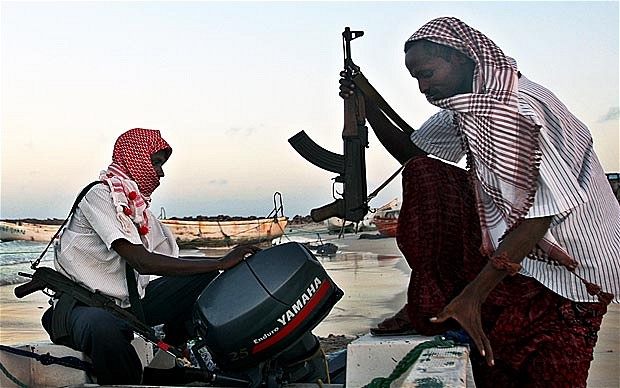
August 2012
The crew of the MV Iceberg 1 was hijacked in the spring of 2010, and to this day, the crew is still held captive. They have been seemingly forgotten by countries and other organizations, and are the longest-held maritime hostages in modern history.
Completely abandoned by their irresponsible and profit-seeking shipping company, the situation has become increasingly desperate.
The crew of 24 sailors has undoubtedly been living in sub-human conditions over the past two years. Pirates commonly hold their hostages in small rooms and limit their access to food, water and toilets. One of the sailors has already committed suicide, and another has lost his life for unexplained reasons.
While reports are that the number of piracy incidents have dropped in recent months, the plight of the MV Iceberg 1 should serve as a reminder that the problem is not yet solved. They remain among the roughly 180 hostages still in captivity in the region.
Because of the general success of joint-naval task-forces, the pirate attacks that succeed are becoming far more desperate. Knowing that the opportunity to ransom hostages now doesn’t come around too often, those in captivity are subject to increased risk of violence, intimidation and death.
Because of the difficult situation involving the rescue of captives on a ship in the open water, international navies have shied away from daring rescues of hostages, knowing that fatalities are extremely likely unless the pirates are taken by complete and utter surprise. Therefore, the shipping companies are often left to negotiate a ransom if they want their ships and crew members to be freed.
The problem here is that international shipping companies can be unscrupulous. The MV Iceberg 1 is owned by the Dubai-based Azal Shipping company, which has been accused of leaving the sailors to their fate, as well as refusing to even pay wages for those who are in captivity. If they won’t even pay them wages, chances are slim that Azal will cough up the requested $8 million ransom for the crew. It is possible that the company was skimping on paying kidnapping and ransom insurance, which can be pricey, but is necessary in such dangerous waters.
Such recklessness endangers the industry as a whole along with the lives of those that participate in it. The MV Iceberg 1 was apparently not travelling in an approved safe-corridor when it was hijacked, another money-saving measure irresponsible shippers often take.
The ship was taken to a Somali port city that is now a major pirate stronghold. They have had limited contact with the outside world, but when they have had the chance to speak, have elaborated on their terrible state of captivity. The Yemeni Captain, Abdirazzak Ali Saleh, reported that crew members were in captivity all times of the day and were only fed one meal. Having been kept in this condition for many months, numerous captives have developed serious health problems.
Because the crew is so international, it is difficult for any one country to become approved to act aggressively, even if it wants to take the risk. For instance, if India wanted to raid the ship to attempt to rescue the hostages, the proposal could be easily shot down by any of the several other governments representing the interests of their own hostage.
Because many come from impoverished nations to begin with, their own governments balk at paying the ransom themselves. Combined with an international shipping company that is only concerned with profits, the crew has little hope of seeing the $8 million ransom thrown together. Their only hope may lie in a daring raid, or in convincing the increasingly desperate pirates to lower their ransom. However, as time marches on and the pirates have invested more and more into this situation, it remains unlikely that they would settle for any less than their requested amount.